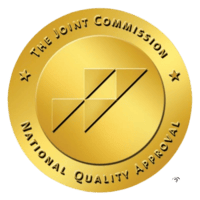Understanding Child Custody Basics
To comprehend how addiction can complicate custody battles, one must first grasp the rudimentary principles of child custody laws and their primary focus on the welfare of the child. The crux of these laws is determining the child’s best interests, which is assessed through the Custody Evaluation Process. This intricate process evaluates various factors, such as the child’s emotional, educational, and physical needs, the parental ability to meet those needs, and the existing parent-child relationship.
Furthermore, the laws allow for Non-Parental Custody, wherein a third party, such as a grandparent or an aunt, can secure custody if it is in the child’s best interest. This provision is particularly relevant in cases where a parent’s addiction impedes their ability to provide adequate care. A more nuanced understanding of the legal implications of addiction in child custody battles is crucial to grasp the ramifications for the families involved.
Substance Abuse and Legal Implications
Substance abuse often complicates these cases, becoming a vital factor that courts consider in determining the best interests of the child. Addiction stigmatization can greatly influence the outcome of custody battles. Parents struggling with addiction often face prejudice, with their parenting abilities being questioned based on the presence of substance use disorder. This bias may lead to an unfair disposition, underscoring the importance of thoroughly evaluating the individual’s parenting capacity.
Moreover, the engagement in recovery programs can play a pivotal role. Parents who actively participate in such programs demonstrate a commitment to overcoming their addiction, which can positively sway court decisions. However, it’s important to remember that recovery is a long-term process, not an immediate fix. Courts require evidence of sustained sobriety and progress in maintaining a stable, safe environment for the child.
The Court’s Perspective on Addiction
From a legal standpoint, courts view addiction not as a moral failing but as a potentially harmful condition that may impact a parent’s ability to provide a safe and nurturing environment for their child. This perspective shifts the focus from punishment to prevention and protection in custody battles, placing the child’s welfare at the forefront of decision-making. The courtroom consequences of addiction can be severe and far-reaching, often leading to the limitation or complete revocation of parental rights.
Courts consider factors, such as addiction severity, parent commitment to recovery, and the potential risk to the child. Preserving a child’s physical and emotional well-being is paramount, and custody decisions serve the child’s best interest. While addiction does not automatically disqualify a parent from obtaining custody, it can impact the court’s decision. Courts encourage parents battling addiction to seek help, highlighting rehabilitation’s importance in custody fights.
Role of Child Protective Services
While courts play a significant role in custody decisions, Child Protective Services (CPS) also has an important part in safeguarding the welfare of children in families affected by addiction. The role of CPS involves a thorough assessment of the child’s living conditions, family dynamics, and the parent’s ability to provide a safe and nurturing environment amidst the addiction struggle.
Service limitations and staff training can impact CPS effectiveness. Service limitations arise from excessive caseloads and insufficient resources, compromising intervention quality and timeliness. Staff training is crucial in handling substance abuse cases. Professionals need training to identify addiction signs, understand its parenting impact, and develop effective strategies.
Emotional Impact on Children
Certainly, the emotional impact of parental addiction on children is profound, often manifesting in various forms of psychological distress and behavioral problems. Childhood Trauma is a haunting experience that can distort a child’s sense of safety and security, with symptoms including nightmares and fear of separation. This trauma can also trigger Behavioral Issues as children attempt to cope with emotional turmoil, potentially leading to aggression, withdrawal, or mimicry of addictive behaviors.
Moreover, children’s responses can vary based on age and understanding of the situation. While younger children may internalize guilt, teenagers often externalize frustration, leading to rebellious or self-destructive behavior. In custody battles, these emotional scars can influence the child’s preference, further complicating proceedings. Professionals in legal and psychological fields must recognize these signs and offer appropriate support to mitigate the emotional toll on vulnerable individuals.
Long-term Consequences for the Child
The in-depth consequences for a child embroiled in a custody battle involving addiction are significant and multifaceted. Such circumstances can lead to impaired childhood development, potentially affecting the child’s emotional, academic, and social capacities. The child’s resilience can be undermined by the chaotic environment that addiction fosters, leading to profound emotional distress and instability.
This damage is not always immediately apparent. Trauma therapy becomes an essential lifeline, helping them navigate their emotional landscape and process experiences. Children learn to heal, fostering resilience and emotional well-being despite their trials. While the emotional impact is profound, it is not insurmountable, given appropriate support and intervention to ensure healthier development.
Impaired Childhood Development
Steering through the tumultuous waters of impaired childhood development, children of addicted parents frequently grapple with long-term challenges that extend far beyond emotional instability. Neurological implications arise as the child’s brain, in its formative years, is subjected to stressors that distort normal growth patterns. This often results in cognitive difficulties, including issues with focus and memory, impinging on academic performance.
Furthermore, these children may exhibit social interaction deficits, another ramification of parental addiction. These deficits often manifest as an inability to build and maintain meaningful relationships, a critical component of the human experience. Rehabilitation’s role is crucial in addressing these deficits, assisting in rebuilding trust and improving communication skills to enhance social interactions and relationships.
Rehabilitation and Its Effect on Custody
The impact of rehabilitation on custody disputes is complex, involving recovery efforts, legal aspects, and the overall focus on child welfare. Family intervention plays a critical role in personal recovery, often acting as the catalyst that guides an individual toward seeking help. Demonstrating commitment to recovery through rehab can positively affect standing in a custody battle if seen as a genuine effort toward sobriety and stability.
However, rehabilitation is not guaranteed; the court’s primary concern is the child’s best interest. The court considers the length of sobriety, the type of addiction, the individual’s history of relapse, and the overall stability of the home environment. While rehabilitation can sway custody decisions, it is not the sole determinant, as courts prioritize sustained change and a suitable environment for the child.
Coping Strategies for Parents
Custody disputes, especially when addiction is involved, can be extremely emotionally difficult for parents. Parents must understand their stress triggers and adopt healthy coping mechanisms to maintain personal well-being and guarantee the best possible outcome for their children. This section will explore these two key strategies, offering insights into how parents can effectively manage their stress while traversing the custody battle landscape.
Parental burnout leads to detachment from duties and responsiveness issues. Financial strains exacerbate parental stress, arising from legal fees, household maintenance, and treatment costs. Stigma adds to stress and isolation. Parents face heightened scrutiny, and the fear of losing custody triggers addictive behaviors. Understanding these stressors fosters healthier coping strategies.
Implementing Healthy Coping Mechanisms
Recognizing these challenging stressors, it becomes paramount to explore strategies that parents, particularly those battling addiction, can employ for better management of stress and overall mental well-being. Adopting healthy coping mechanisms such as stress management techniques and communication patterns can greatly improve resilience and the ability to navigate complex legal processes.
Stress management is vital for mental well-being, with techniques like mindfulness and deep breathing reducing stress’s toll. Healthy communication helps parents express feelings, manage emotions, and reduce relapse likelihood, assisting parents in navigating custody battles while maintaining emotional stability.
Preventive Measures and Support Systems
Implementing preventive measures and establishing support systems are pivotal strategies in mitigating the negative impact of addiction on custody battles. Addiction stigmatization exacerbates an already complex situation, leading to discriminatory practices that can adversely affect custody cases. A strong preventive measure involves thorough therapeutic intervention while dismantling negative perceptions.
Support systems, including mental health services and peer groups, are crucial in addiction recovery. Their involvement reduces relapse risk, bolsters resilience, and facilitates healthier relationships, impacting custody evaluations positively. Legal professionals can ensure the court interprets recovery efforts accurately, altering custody battle trajectories to focus on the child’s best interests.

Final Thoughts
Addiction amplifies child custody disputes, influencing court decisions, Child Protective Services involvement, and child emotional well-being. The courts prioritize the child’s best interests, often demanding evidence of recovery and sustained sobriety. The emotional toll on children and potential long-term impacts underpin the necessity for rehabilitation, coping mechanisms, and support systems. Addressing addiction and ensuring a stable, sober environment are essential in such custody battles.
At BlueCrest Detox, we’re dedicated to elevating you from the struggles of substance use to the peaks of recovery and resilience. Our expert team offers personalized, evidence-based treatment services tailored to support your unique journey toward healing. Reach out to us for the compassionate care you deserve on your path to wellness. Follow us on Facebook for ongoing support, insights, and inspiration on your recovery journey.
Frequently Asked Questions
How Does Addiction Affect the Financial Stability of the Parent in a Custody Battle?
Addiction can greatly impact a parent’s financial stability due to the high costs associated with addiction recovery and rehabilitation. This financial instability may affect their ability to provide for the child’s needs in a custody battle.
Are There Exceptions Where an Addict Parent Can Win Custody?
Yes, exceptions exist. If an addicted parent demonstrates significant progress in addiction recovery and commitment to rehabilitative support, they may be granted custody. Courts consider the child’s best interest, which includes stable, supportive environments.
How Does Addiction Impact Visitation Rights of the Non-Custodial Parent?
Addiction recovery has a notable impact on the visitation rights of the non-custodial parent. Courts may grant supervised visitation, ensuring the child’s safety while allowing relationship continuation, if the parent demonstrates consistent progress in overcoming their addiction.
Can the Child’s Preference Influence the Court’s Decision in Cases of Parental Addiction?
Yes, a child’s preference can influence court decisions in cases of parental addiction, but it’s secondary to the child’s welfare. Parental rehabilitation is considered, but the ultimate priority is the child’s safety and well-being.
How Are Grandparents’ Rights Affected in Custody Battles Involving Parental Substance Abuse?
In custody battles involving parental substance abuse, grandparents’ rights can be enhanced. Their support is often sought, and they may become primary caregivers if they participate in intervention programs to guarantee the child’s well-being.




